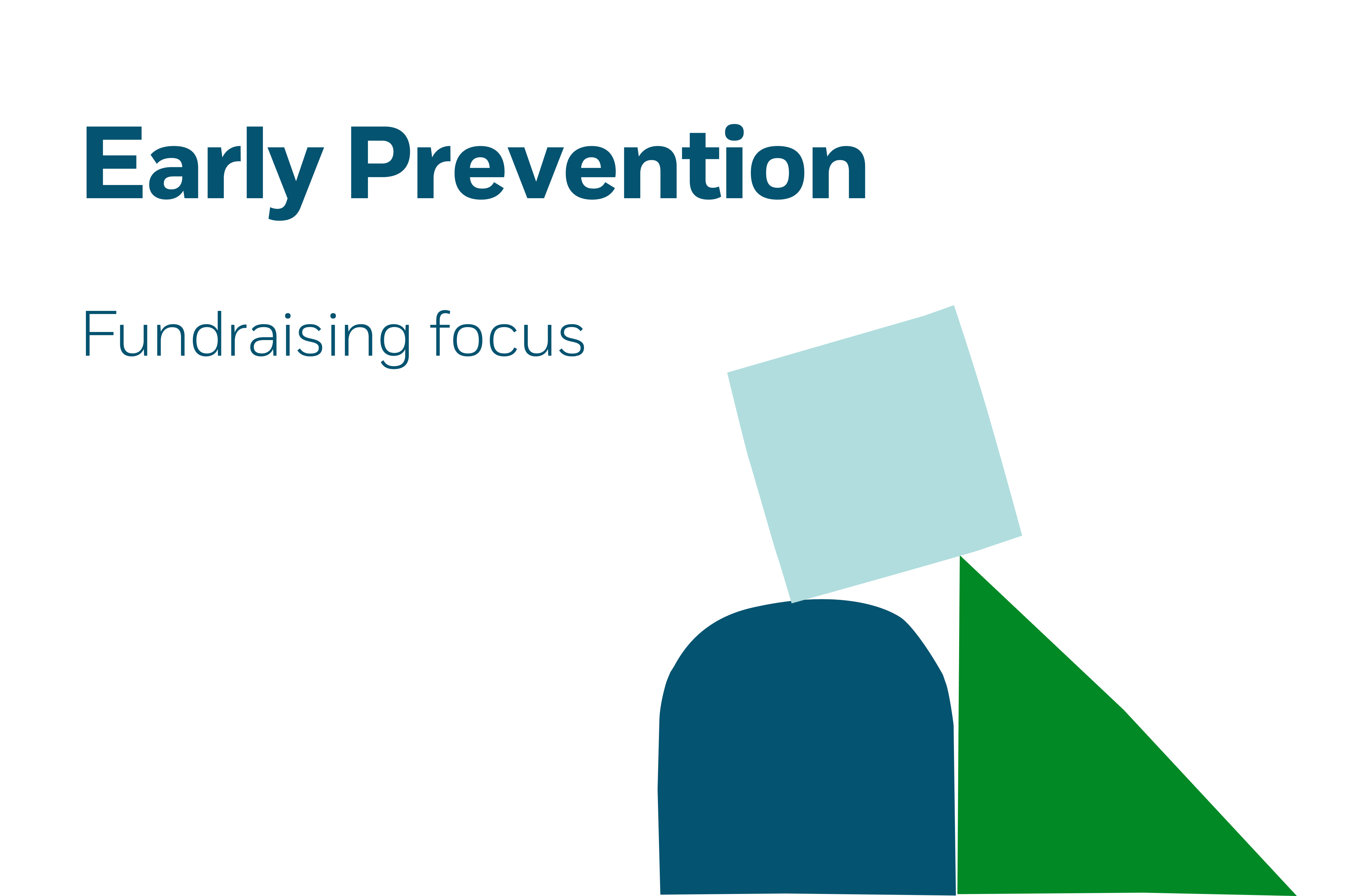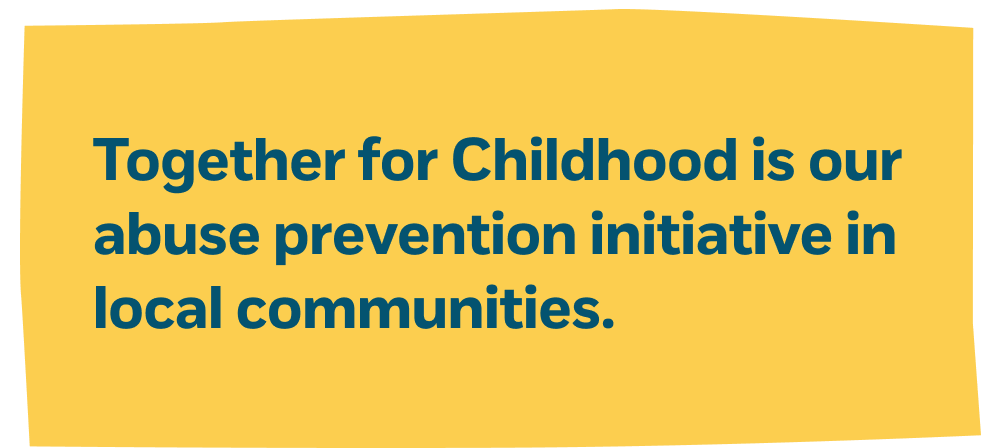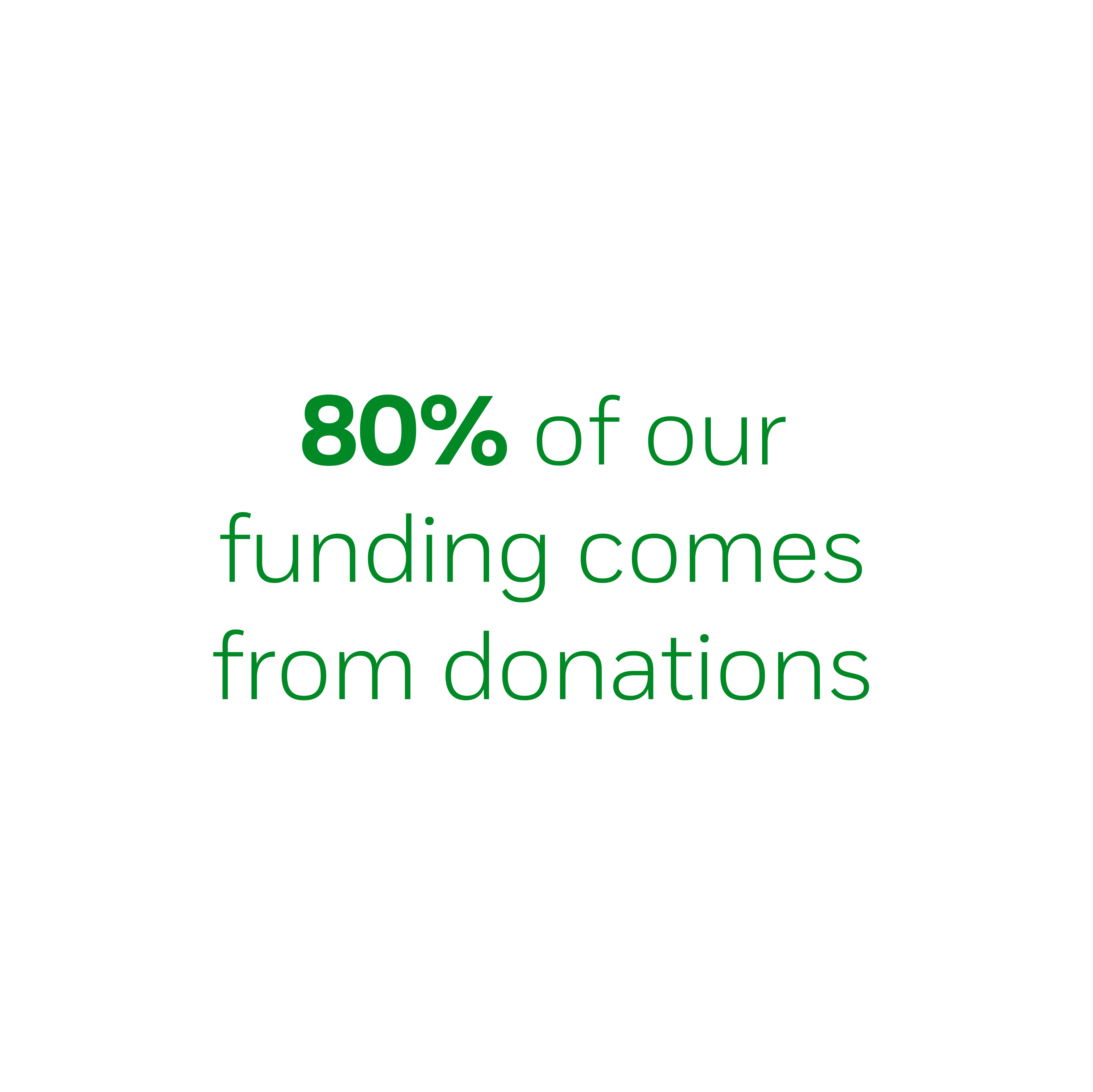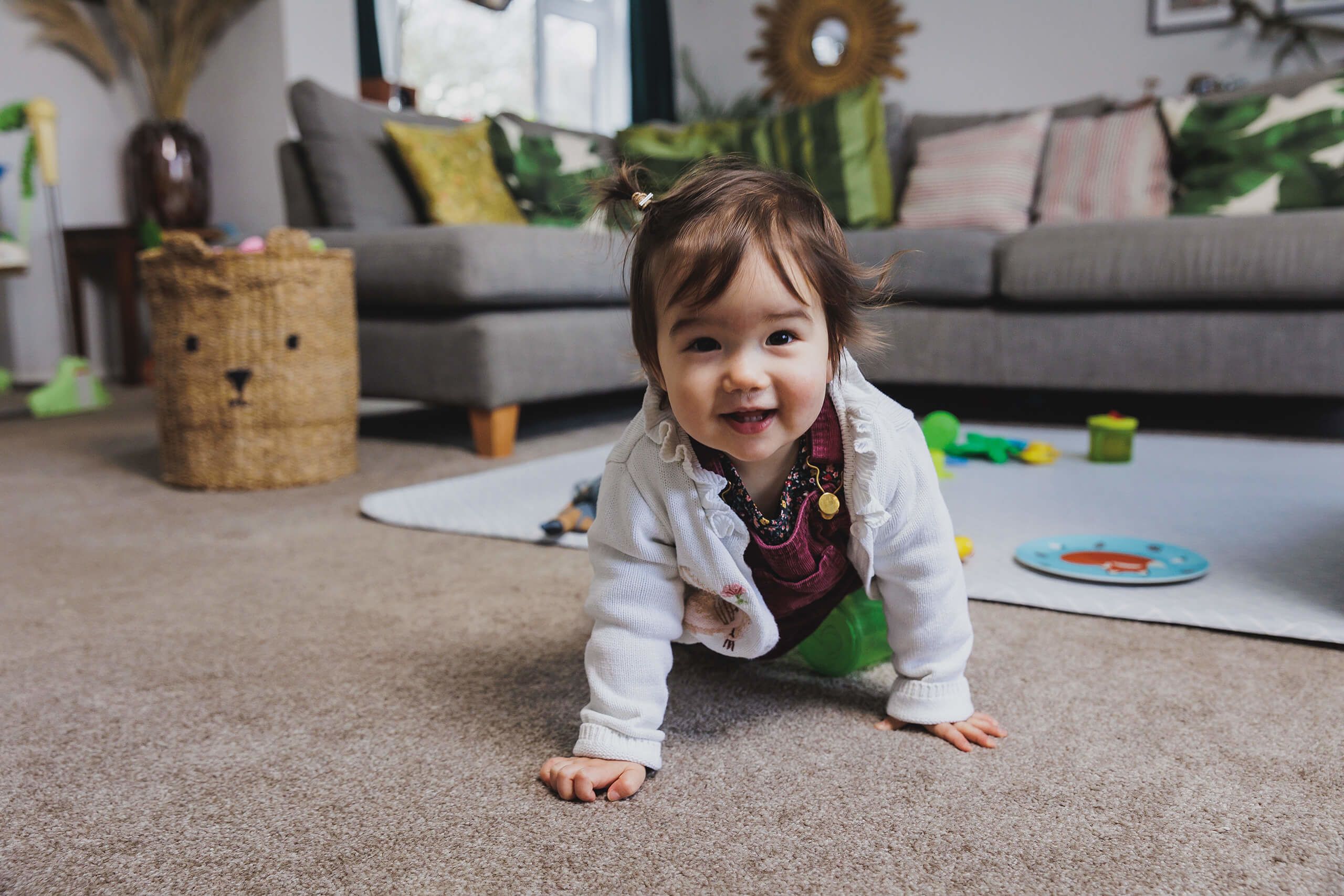
Stopping child abuse before it starts
When we hear or read stories of child abuse, many of us wish we could instantly take the pain away.
But the lifelong effects of abuse often require years of therapeutic care and support to help children get their lives back on track.
Lasting consequences
Unresolved trauma carries a financial burden.
£10 billion – the cost to the UK relating to children who experienced sexual abuse in the previous year, estimated by the Home Office.
£89,000 – the average lifetime cost for adults who experienced any child maltreatment, due to a higher likelihood of worse mental health, lower job prospects and greater welfare dependence.
That’s why the NSPCC’s early prevention work is so important. We are determined to make sure children never experience the horror of abuse.
Social services
are overstretched
The UK has witnessed a significant and widespread drop in universally available early help and preventative services for children and families. In March 2020, the Office for National Statistics estimated 3.1 million adults in England and Wales had experienced sexual abuse before the age of 16.
Meanwhile, not enough is being done to tackle the risk factors of abuse, such as substance misuse and domestic violence.
Shockingly, it is the smallest babies who are most at risk, with the highest homicide rate occurring in children aged under one.
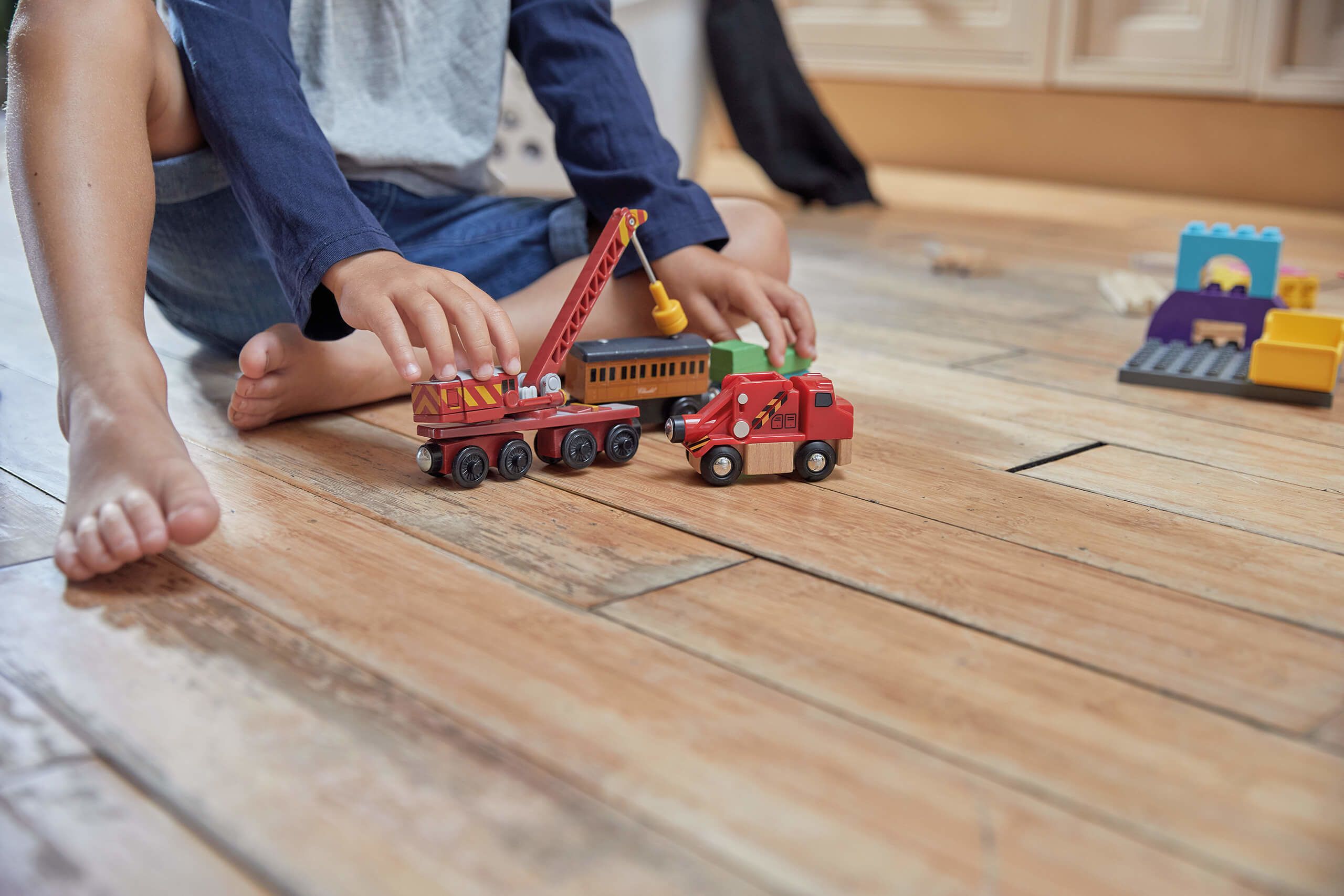
In the UK...
93,500 babies
live with a parent who is
a problem drinker.
19,500 babies
live with a parent who has used Class A drugs in the last year.
39,000 babies
live with a parent who has experienced domestic violence in the last year.
Sexual abuse costs the UK £10 billion per year.
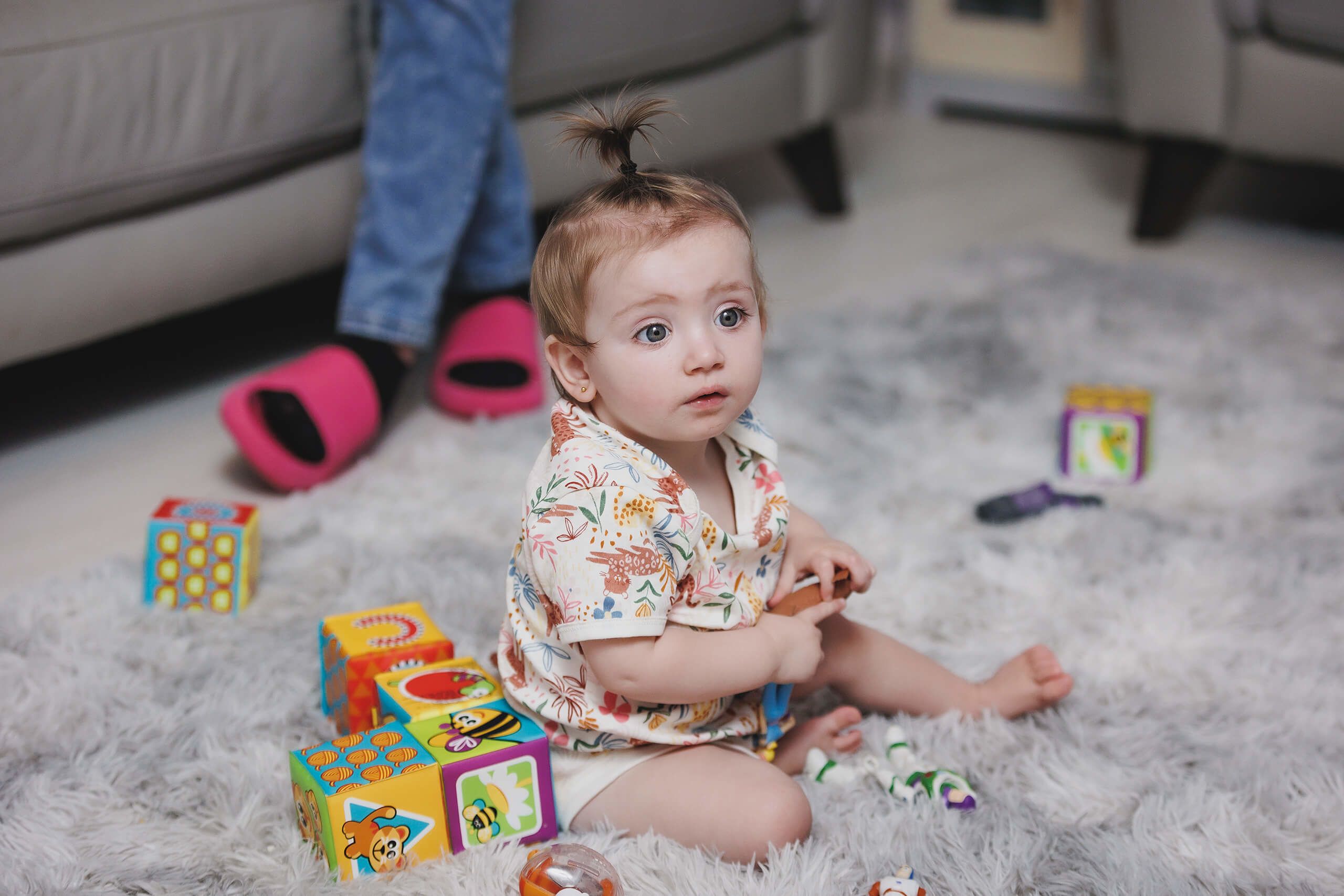

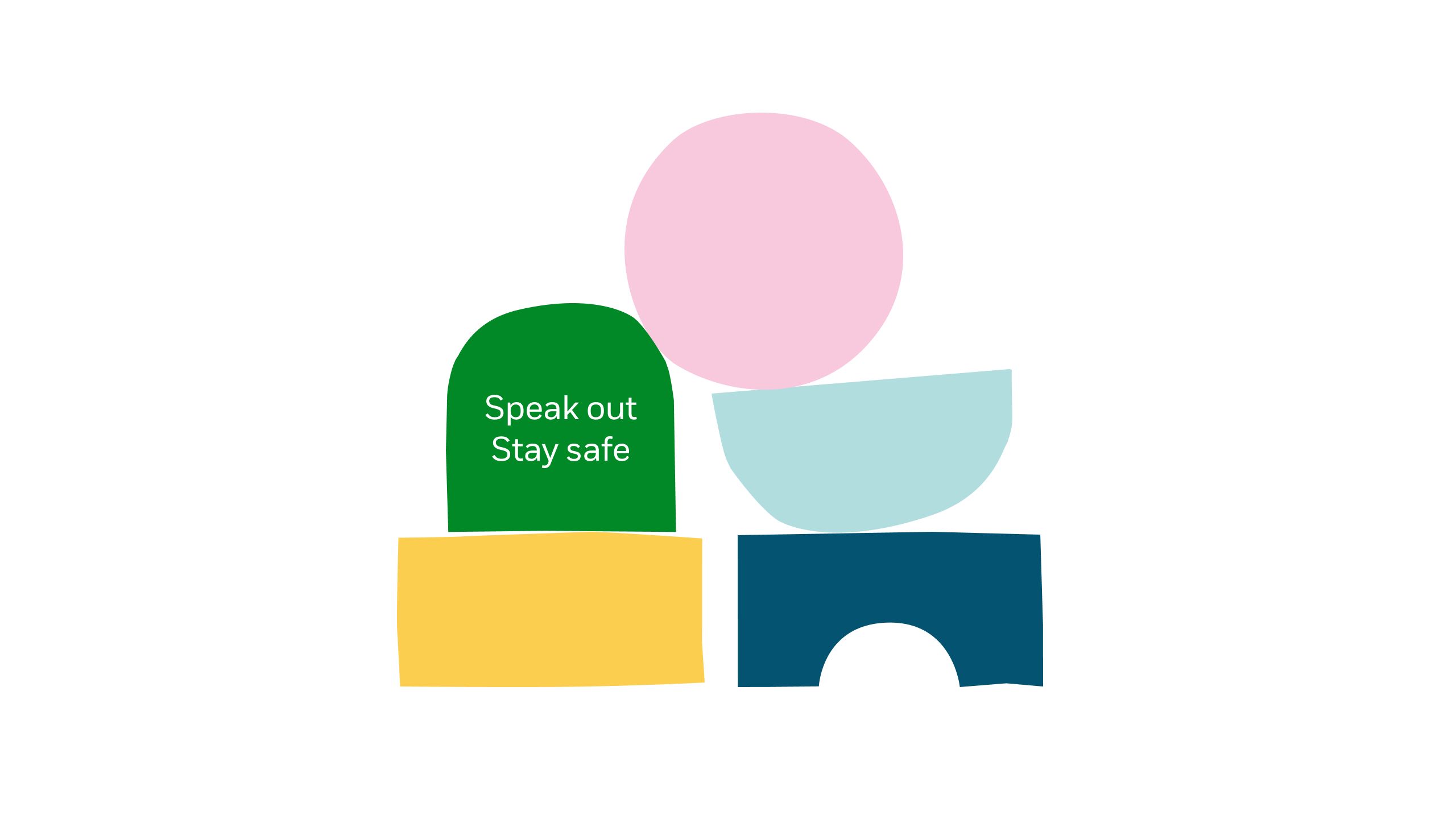
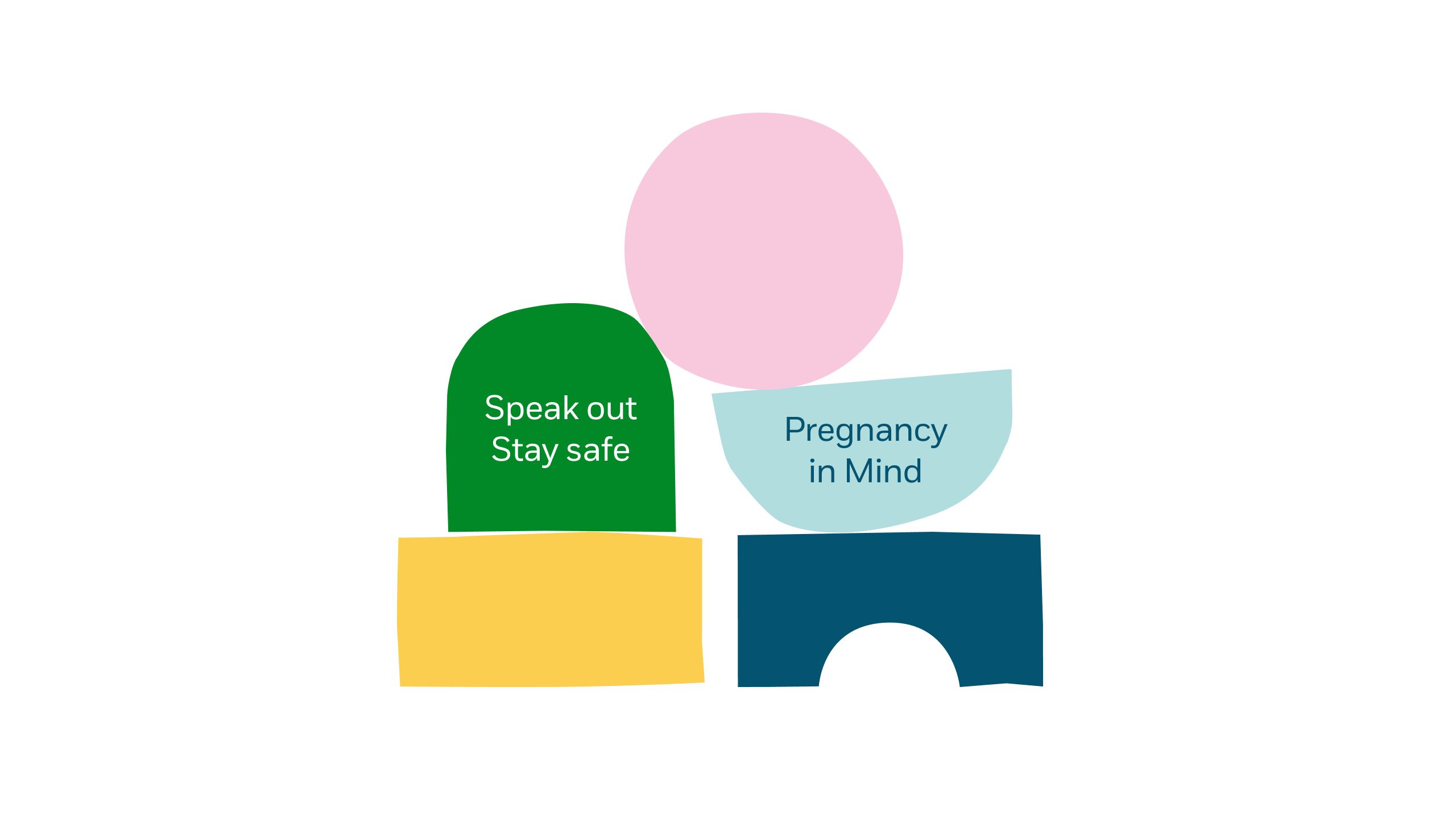
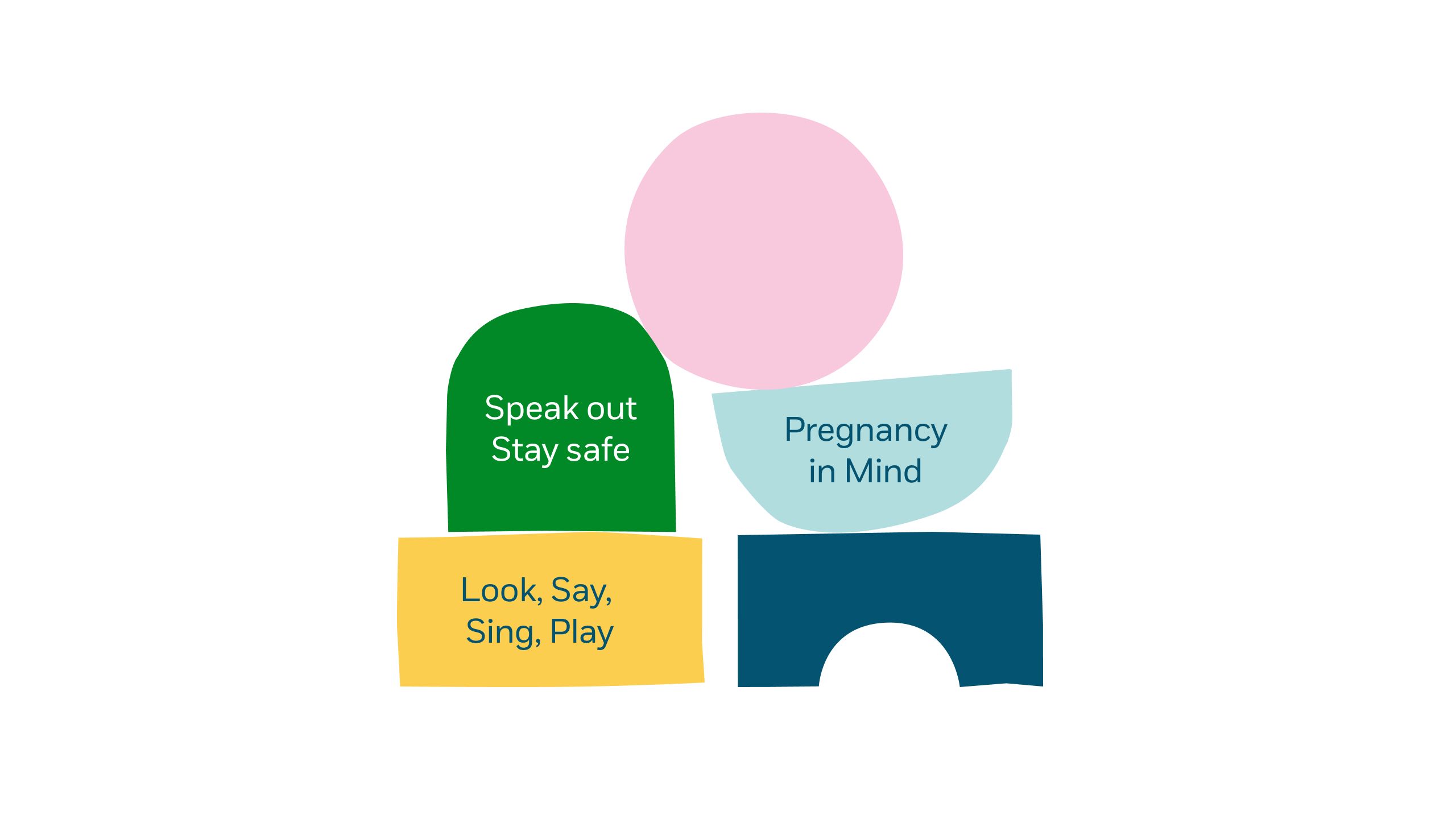
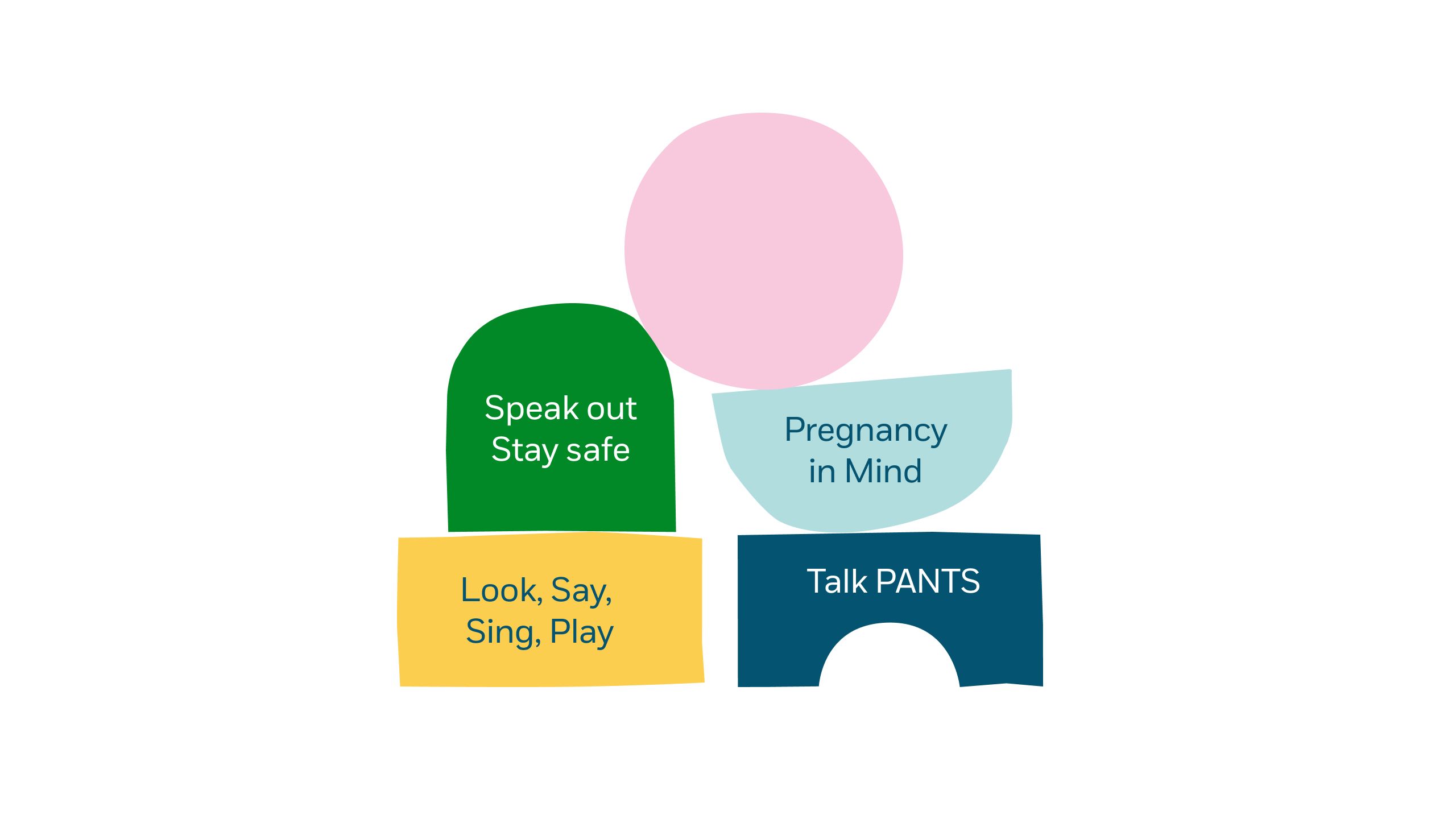
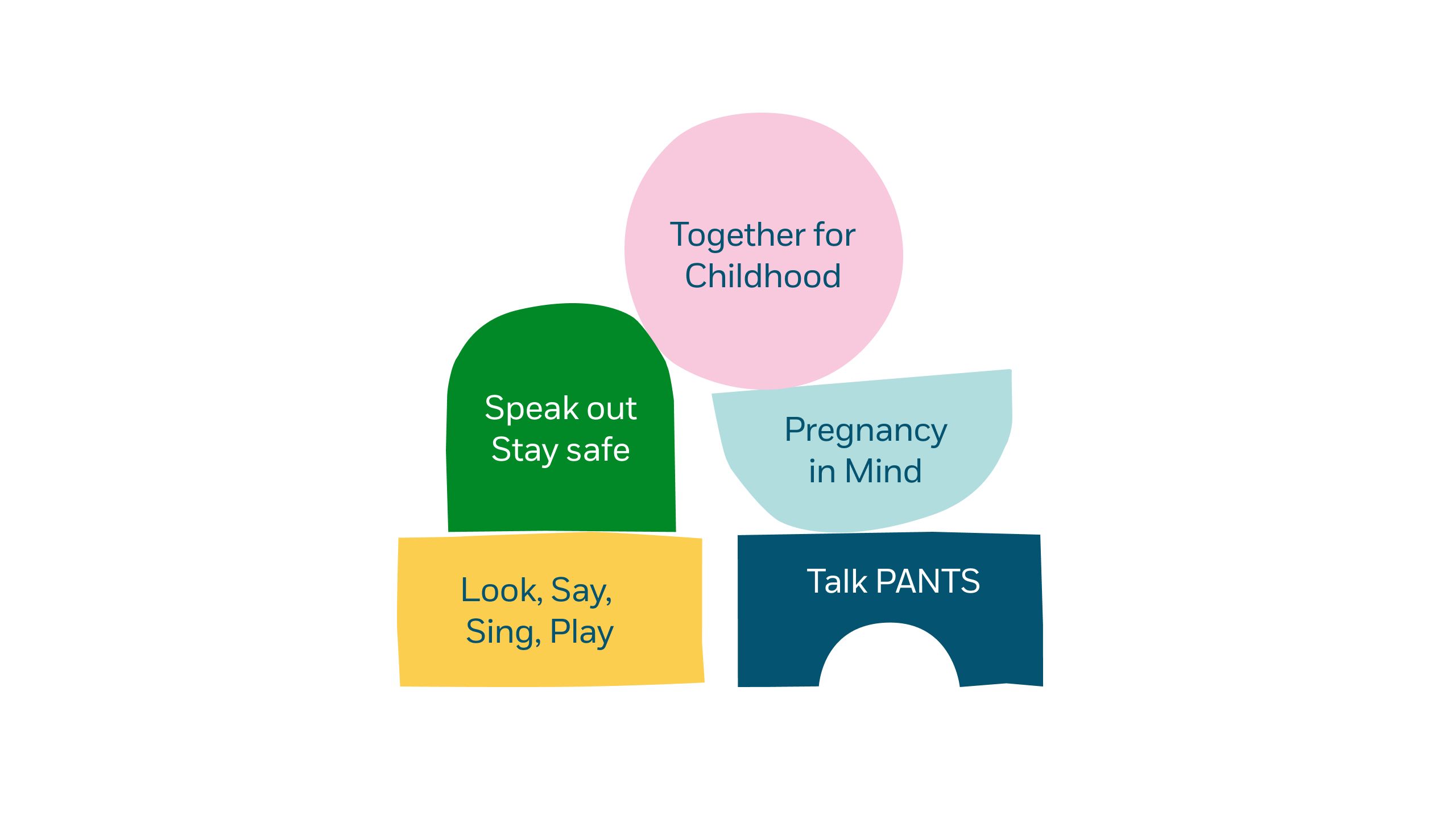
Preventable,
not inevitable
We’ve always believed child abuse can be prevented.
Our approach is to focus on the places where children grow up. We bring together all the people in a child’s life, like family, friends and professionals. We consider all the different parts of the system, such as their school, doctors or social workers. All to build a ‘social safety net’ around every child.
We’ll be there at every stage of a child’s life. We’ll always base our work on evidence. We’ll never shame or stigmatise people – just work tirelessly, day after day, to prevent cruelty to children.
To help prevent child abuse before it begins, our services include:
Speak out Stay safe, our safeguarding programme helping schools protect children from abuse
Pregnancy in Mind, our mental health service for parents-to-be
Look, Say, Sing, Play, our campaign to help parents bond with their newborns by learning about baby brain development
Talk PANTS, our friendly dinosaur teaching
young children about
recognising abuse
Together for Childhood, our initiative to help communities prevent abuse
Prevention through working with schools
Speak out Stay Safe
Those who abuse children will do their best to stop children speaking out by isolating or threatening them. But at school, children are under the watchful eyes of their teachers on a daily basis – professionals ideally placed to notice when something is wrong.
Working closely
with schools
Our schools service, Speak out Stay safe, supports children aged 5–11 to feel safe, listened to and supported.
We provide virtual assemblies and follow-on lesson plans for teachers. These help children learn about different types of abuse, their rights, why they shouldn’t hide their worries, how to speak out and which safe adults they can turn to, including Childline.
Then we follow up with workshops led by our highly-trained NSPCC volunteers who visit children at school to reinforce what they’ve learned and signpost families to the support available in their communities.
We’ve combined our organisational expertise on abuse with support for school safeguarding plans to help make more schools a place where children feel safe and secure.
Evaluating the service
The programme is continually evaluated to ensure its effectiveness and is showing extremely positive results for children.
Since we launched the service in 2011, we’ve reached more than 90% of primary schools – with almost 1.4 million children at 5,600 schools in 2023/24 alone.
Services like Speak out Stay safe help us reach children earlier, empower schools and prevent devastating harm to children.
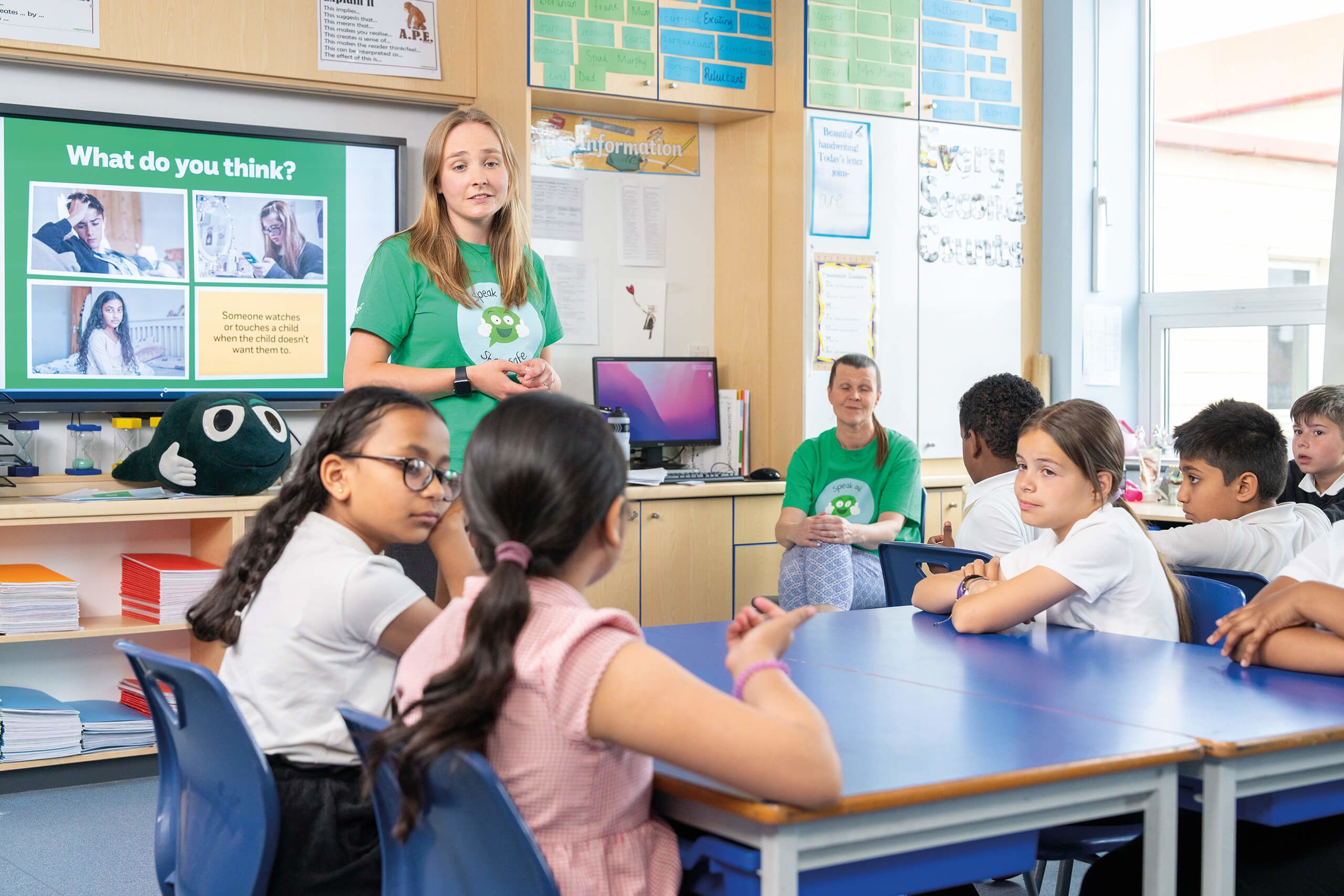
Prevention through better mental health during pregnancy
Pregnancy in Mind
In more than a third of all reviews into cases where children were killed or seriously injured because of abuse or neglect, the mental health of their parents was a factor.
Up to one in five mums and one in ten dads are thought to experience mental health issues such as low mood, anxiety or depression in pregnancy and the year following birth (the perinatal period). Left untreated, research shows this can disrupt the parent-baby relationship, making it harder to provide warm and responsive care.
Yet perinatal mental health problems often go undetected or untreated.
Improving mental health
Pregnancy in Mind is our service aiming to reach expectant parents well before they hit crisis point. We offer mental health information and strategies that help mums and dads of newborns be the best parents they can be.
The programme is available to pregnant women as well as their partners, making the service unique in targeting the mental health of both parents. It covers six beneficial, evidence-based themes:
- Mindfulness meditation.
- Active relaxation.
- Understanding and coping skills.
- Social support.
- Foetal development.
- Adult communication and conflict management.
Positive outcomes
Independent evaluation has shown that Pregnancy in Mind improves the mental health of parents and carers by providing strategies for managing their anxiety or depression. Our online offer is just as effective, improving our geographical reach and making it more accessible.
With one in four people affected by a mental health problem during their lifetime, and statutory services ever more thinly stretched, services like Pregnancy in Mind are filling a vital gap in provision. It’s a programme that could keep many more children safe from harm.

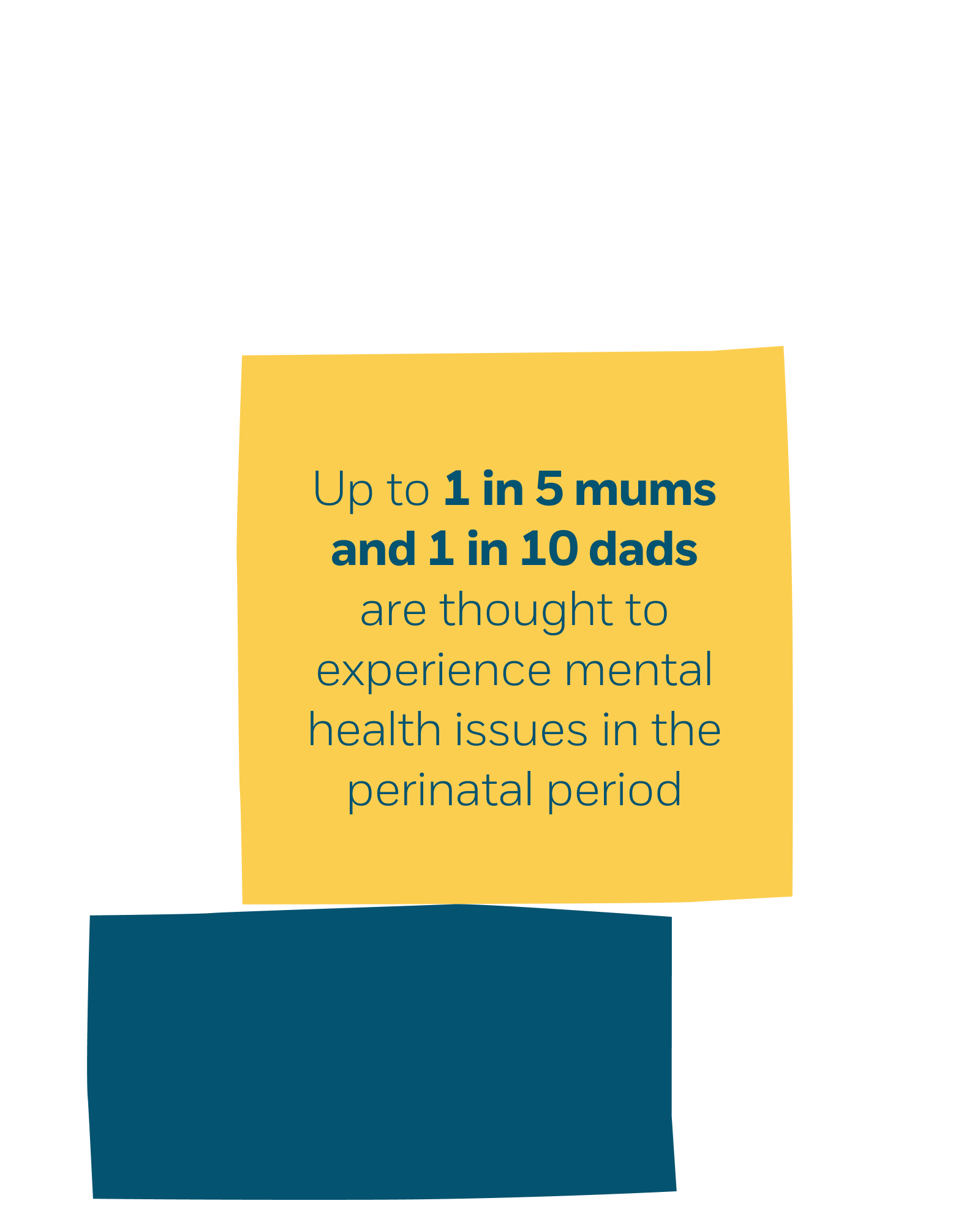
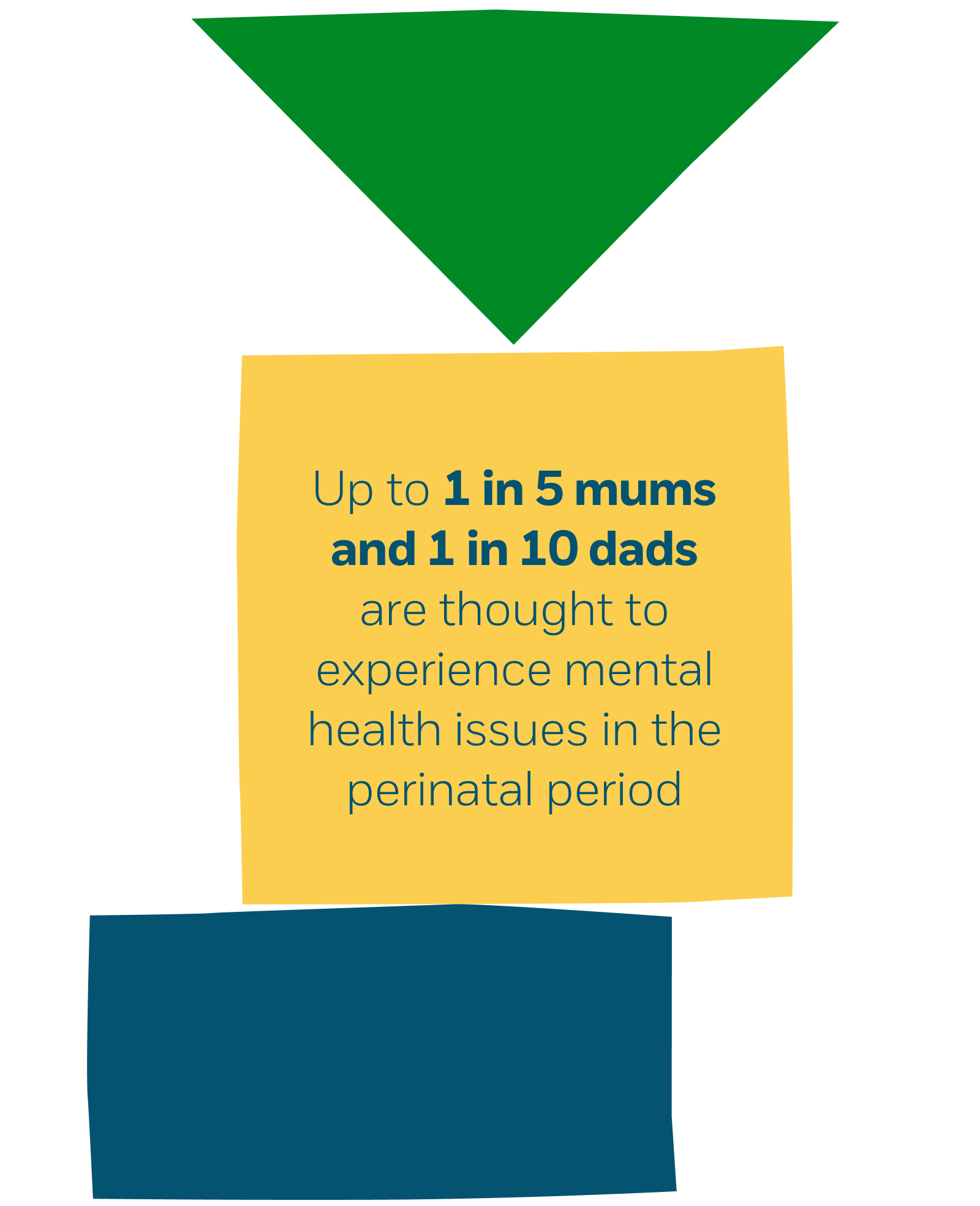
Prevention through better mental health during pregnancy
Pregnancy in Mind
In more than a third of all reviews into cases where children were killed or seriously injured because of abuse or neglect, the mental health of their parents was a factor.
Up to one in five mums and one in ten dads are thought to experience mental health issues such as low mood, anxiety or depression in pregnancy and the year following birth (the perinatal period). Left untreated, research shows this can disrupt the parent-baby relationship, making it harder to provide warm and responsive care.
Yet perinatal mental health problems often go undetected or untreated.
Improving mental health
Pregnancy in Mind is our service aiming to reach expectant parents well before they hit crisis point. We offer mental health information and strategies that help mums and dads of newborns be the best parents they can be.
The programme is available to pregnant women as well as their partners, making the service unique in targeting the mental health of both parents. It covers six beneficial, evidence-based themes:
- Mindfulness meditation.
- Active relaxation.
- Understanding and coping skills.
- Social support.
- Foetal development.
- Adult communication and conflict management.
Positive outcomes
Independent evaluation has shown that Pregnancy in Mind improves the mental health of parents and carers by providing strategies for managing their anxiety or depression. Our online offer is just as effective, improving our geographical reach and making it more accessible.
With one in four people affected by a mental health problem during their lifetime, and statutory services ever more thinly stretched, services like Pregnancy in Mind are filling a vital gap in provision. It’s a programme that could keep many more children safe from harm.
Prevention through helping parents and children bond
Look, Say, Sing, Play
Our brains develop from birth through to adulthood. Early childhood is a crucial period when the things we see, hear and feel have a greater effect on how the brain develops. Positive experiences help to build healthy brains, while experiencing trauma and abuse can harm brain development, which is more difficult to 'repair’ later on.
So children can grow and learn
We’ve developed a flexible set of resources to encourage interaction between parents and their babies, called Look, Say, Sing, Play. It’s based on the science of early learning and designed to help parents play with their children, improve their interactions and provide the safe, loving conditions that boost their baby’s development.
We work directly with parents and extend our reach by providing supporting materials for professionals, too.
The campaign started with a small, local pilot scheme before scaling up to reach parents across the UK.
More than 95,000 parents have signed up to our weekly email tips.
In one evaluation survey, more than four in five of those we spoke to said they gained a better understanding of why quality interactions are important for a child’s development. Most said they used the resources regularly.
Proven to work
The benefits are clear. More parents aware of how their actions impact the early development of their baby. And more service providers and practitioners able to adapt our materials and teach brain building in their own service model, thanks to the flexibility we’ve built in.
We have far more parents to reach to make sure all babies benefit from this approach and gain a strong parental bond throughout childhood.
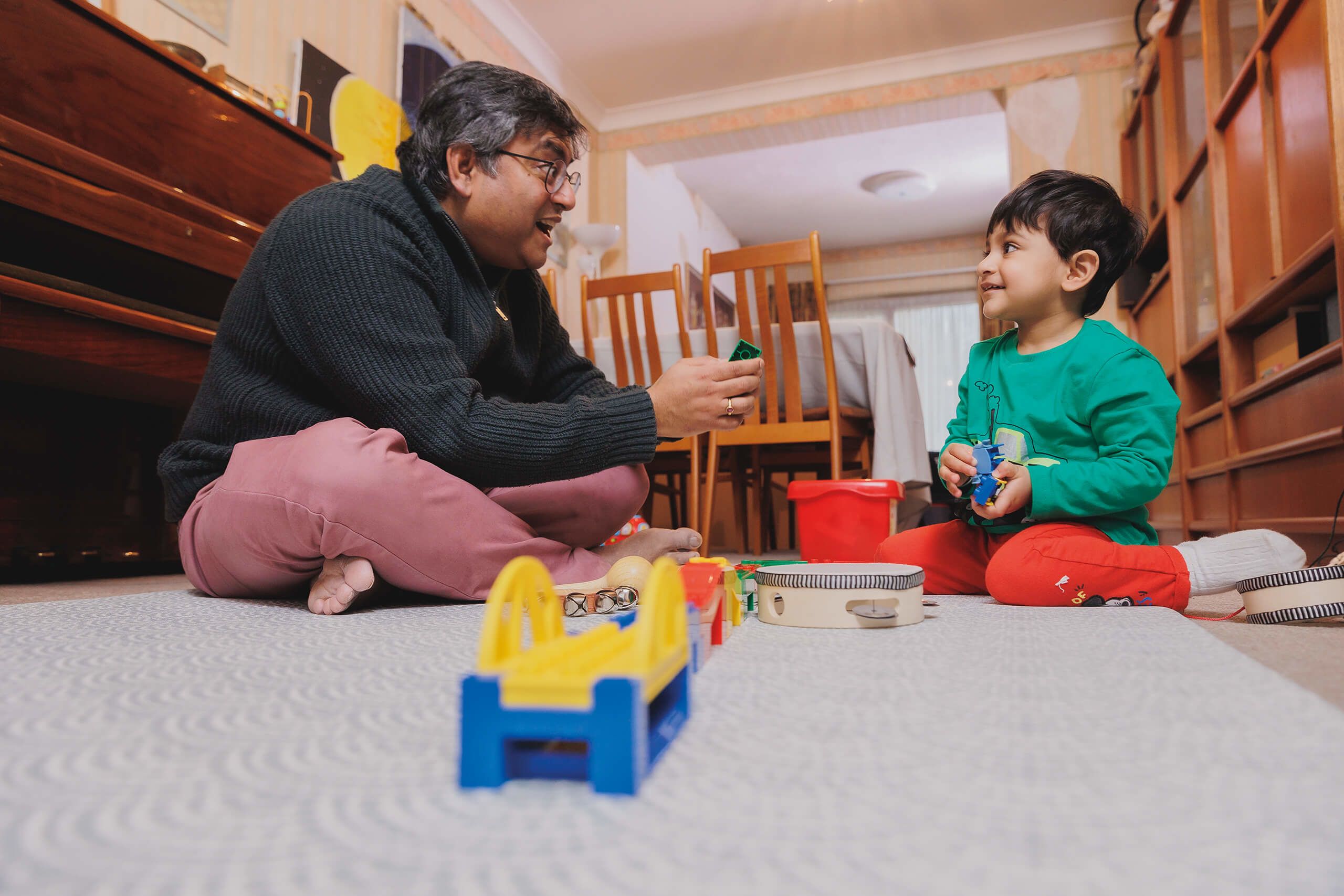
Prevention through talking to children
Talk PANTS
Around 90% of children who experience sexual abuse are abused by someone they know. Children may not always be aware that what is happening to them is wrong, particularly if they’re being groomed. And nobody wants to believe or think about it happening to their child, which has contributed to a stigma in society around talking openly about what to do.
Helping children speak out
How should you talk to young children about sexual abuse to help them stay safe? We do it with the help of our friendly dinosaur, Pantosaurus.
Pantosaurus is the face of our set of tools that help children as young as four learn the Underwear Rule – which tells them to say no if someone tries to see or touch underneath their pants, and tell a safe adult.
Talk PANTS encourages parents, carers, teachers and professionals to have important conversations with children about relationships, including healthy behaviours and building trust, so children know who they can speak to for help.
Reaching millions of children
Since launching in 2012, Talk PANTS has supported 1.5 million parents with keeping their children safe from abuse.
Preventing abuse is never a child’s responsibility.
By equipping them with the knowledge and confidence to speak out, we can reach at-risk children earlier and prevent abuse before it can start.
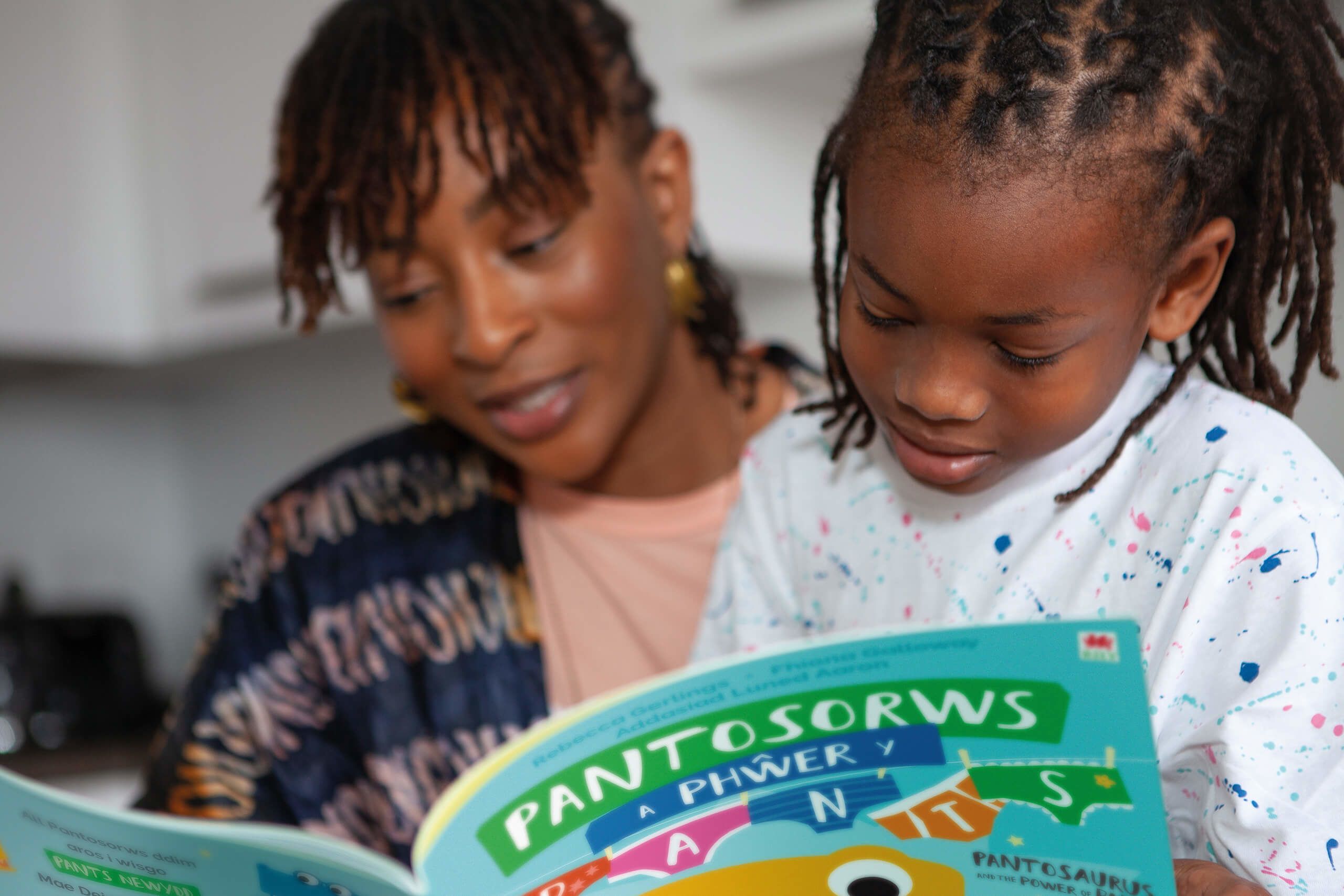
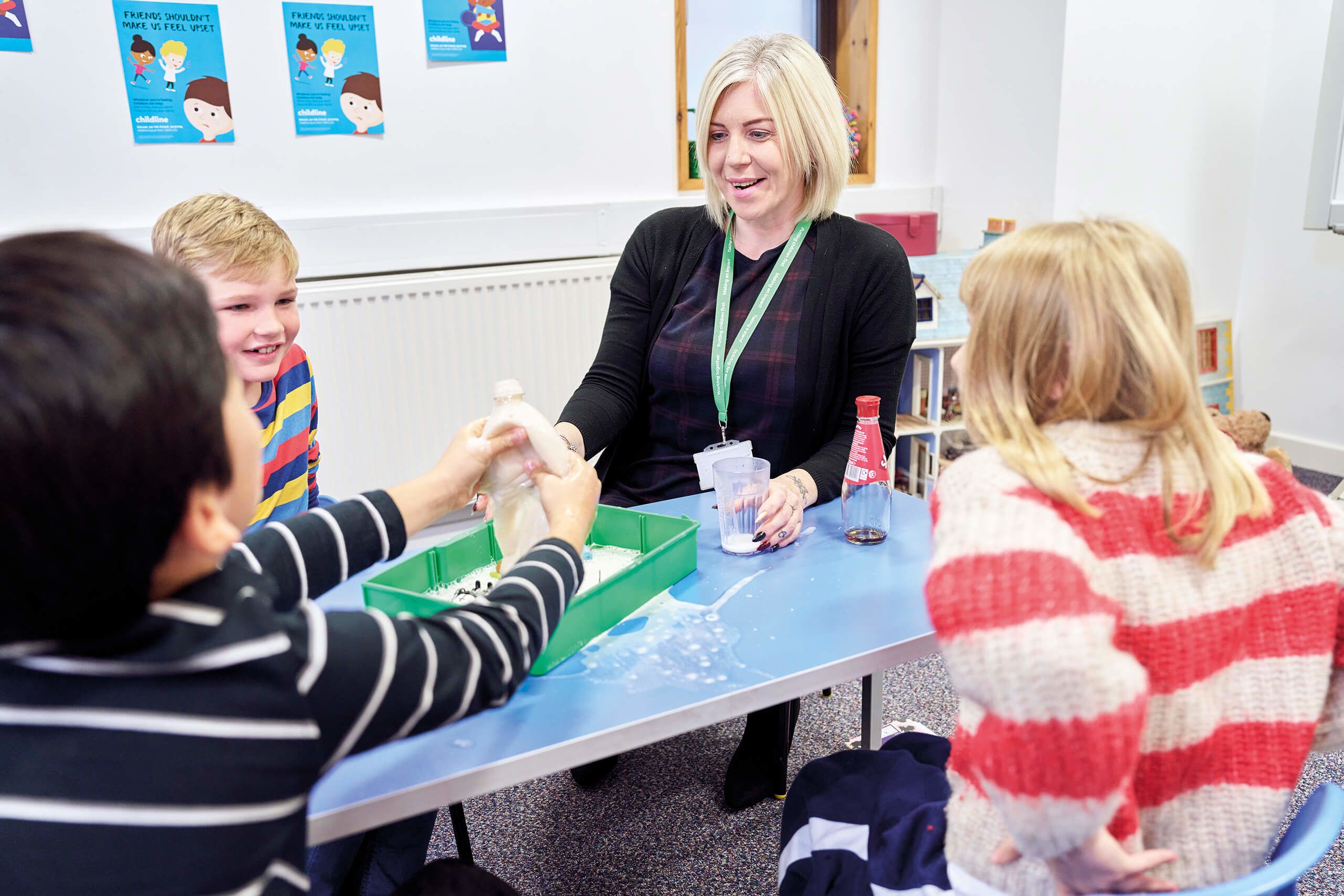
Prevention through
local partnerships
Together for Childhood
After a child is abused, the whole community becomes involved. Their school, doctors, the police and social services. But what if we could bring these people together before abuse occurs – and help prevent it in the first place?
Together for Childhood is our abuse prevention initiative in local communities. We build partnerships between organisations and professionals working with children and families and develop focused projects to help tackle the specific risks children face in their area.
Revolutionising prevention
We imagine a world where every child is empowered to speak out when they’re worried. Where adults know who to speak to about their concerns, organisations have the confidence to recognise abuse and do something about it and every single person in an area knows their role in the communal effort to keep children safe.
That’s Together for Childhood.
We are currently operating this long-term grassroots project with local partners in four locations across the UK where children are facing the greatest challenges. Together, we’re achieving far more than we ever could alone.
A comprehensive approach
Our national services and campaigns, including Childline, Talk PANTS and Look, Say, Sing, Play, are complemented by bespoke services and activities that tackle local issues.
In Plymouth, we’re helping children learn what healthy relationships look like in partnership with Barnardo’s, local schools and teenagers.
In Glasgow, we’re hosting a knowledge bank for professionals and local people so no-one misses out on support because they didn’t know about it.
At the NSPCC, we’re not here to offer sticking plasters for complex problems.
This is a future-focused, place-based, ambitious initiative that will radically improve the way children are kept safe from abuse and neglect. We want to usher in a holistic new way of thinking about preventing child abuse.


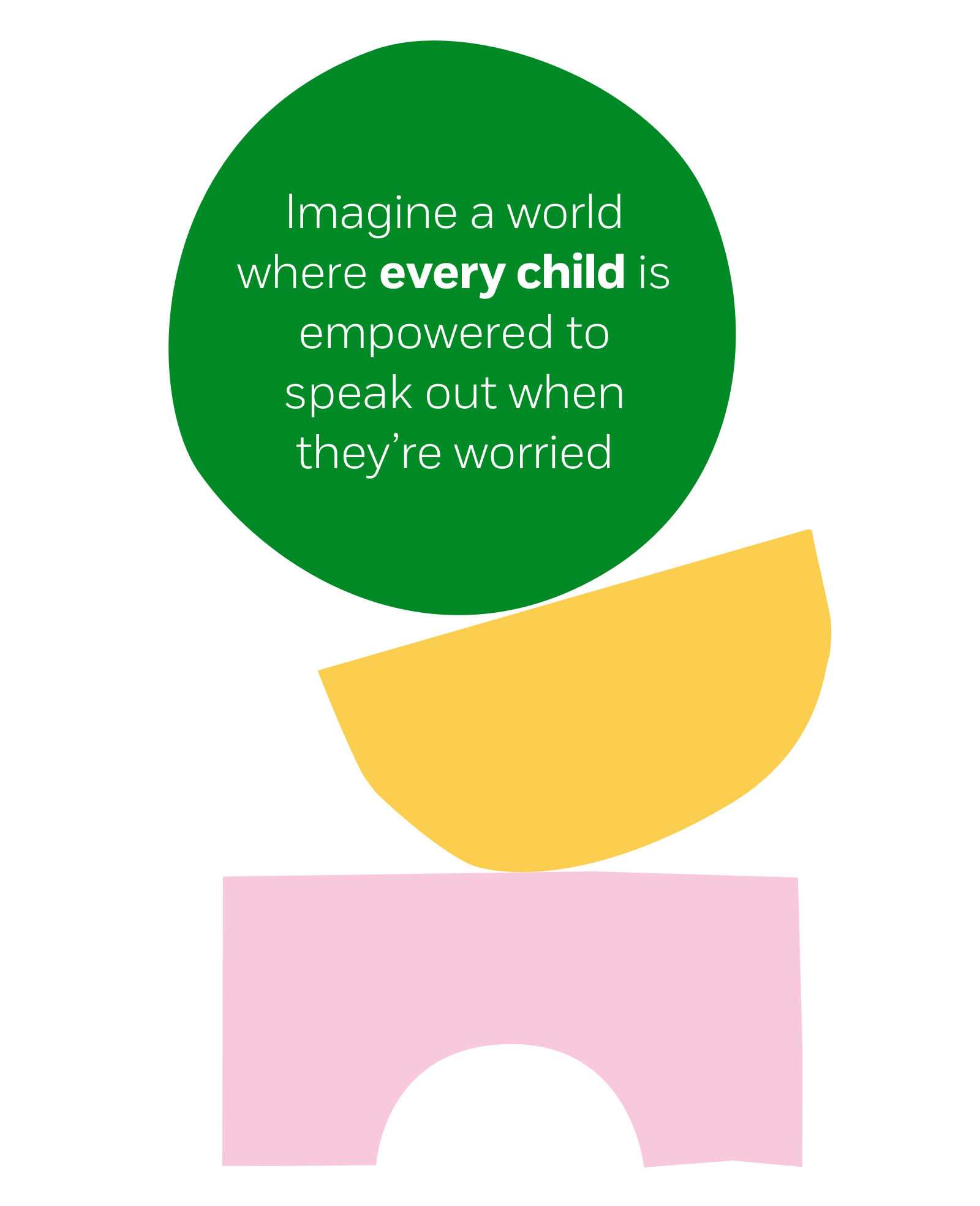
Prevention through
local partnerships
Together for Childhood
After a child is abused, the whole community becomes involved. Their school, doctors, the police and social services. But what if we could bring these people together before abuse occurs – and help prevent it in the first place?
Together for Childhood is our abuse prevention initiative in local communities. We build partnerships between organisations and professionals working with children and families and develop focused projects to help tackle the specific risks children face in their area.
Revolutionising prevention
We imagine a world where every child is empowered to speak out when they’re worried. Where adults know who to speak to about their concerns, organisations have the confidence to recognise abuse and do something about it and every single person in an area knows their role in the communal effort to keep children safe.
That’s Together for Childhood.
We are currently operating this long-term grassroots project with local partners in four locations across the UK where children are facing the greatest challenges. Together, we’re achieving far more than we ever could alone.
A comprehensive approach
Our national services and campaigns, including Childline, Talk PANTS and Look, Say, Sing, Play, are complemented by bespoke services and activities that tackle local issues.
In Plymouth, we’re helping children learn what healthy relationships look like in partnership with Barnardo’s, local schools and teenagers.
In Glasgow, we’re hosting a knowledge bank for professionals and local people so no-one misses out on support because they didn’t know about it.
At the NSPCC, we’re not here to offer sticking plasters for complex problems.
This is a future-focused, place-based, ambitious initiative that will radically improve the way children are kept safe from abuse and neglect. We want to usher in a holistic new way of thinking about preventing child abuse.
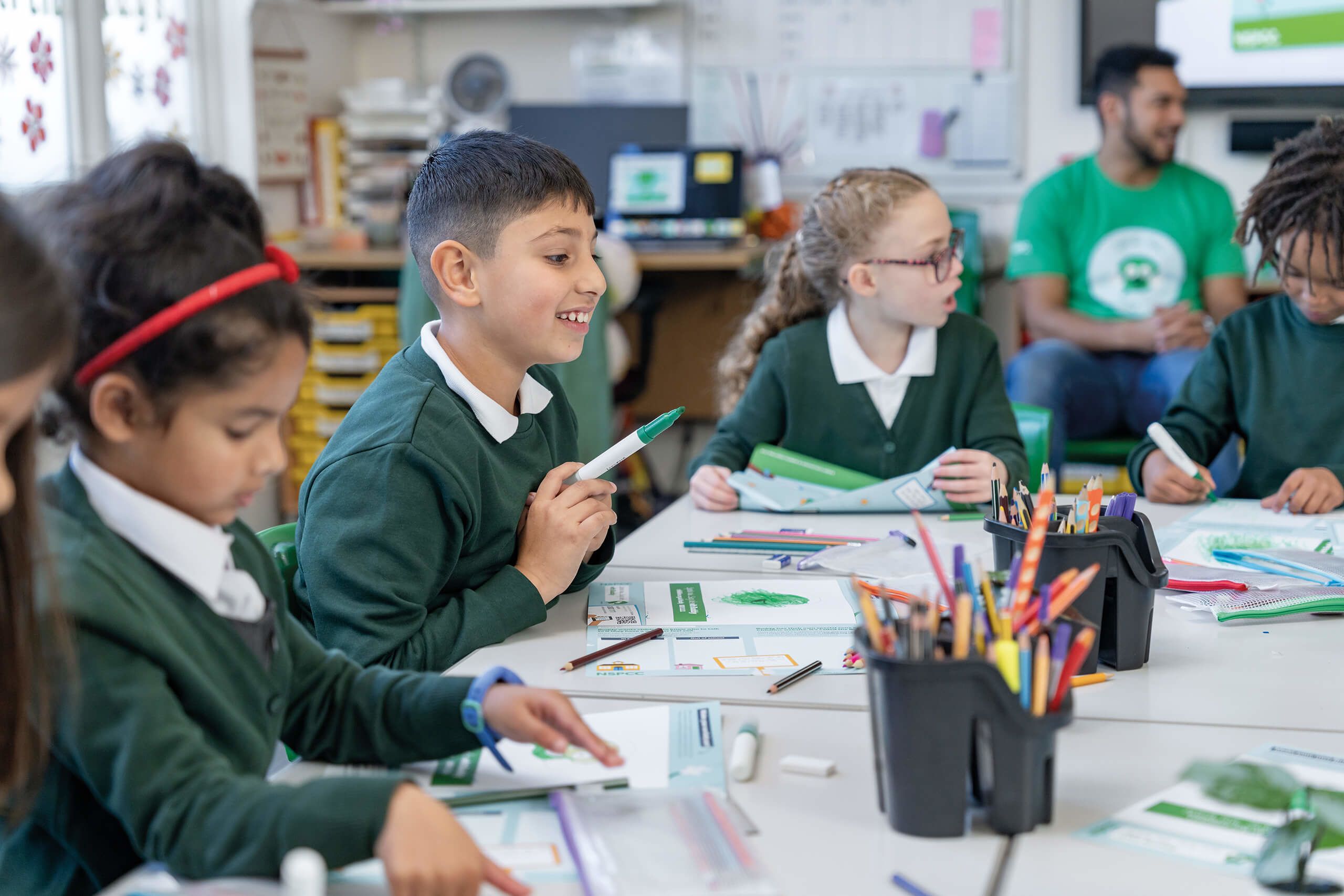
Will you help prevent child abuse?
Prevention is in our name. It’s at the heart of what we do as a charity – and everyone’s moral responsibility.
By prioritising prevention, we create a better, safer future for millions of children.
Our supporters have the opportunity to help us bridge the gap in service provision while statutory bodies and organisations focus on emergencies.
The impact of your support for the NSPCC's early prevention work could be to spare children from experiencing years of pain and hurt.
